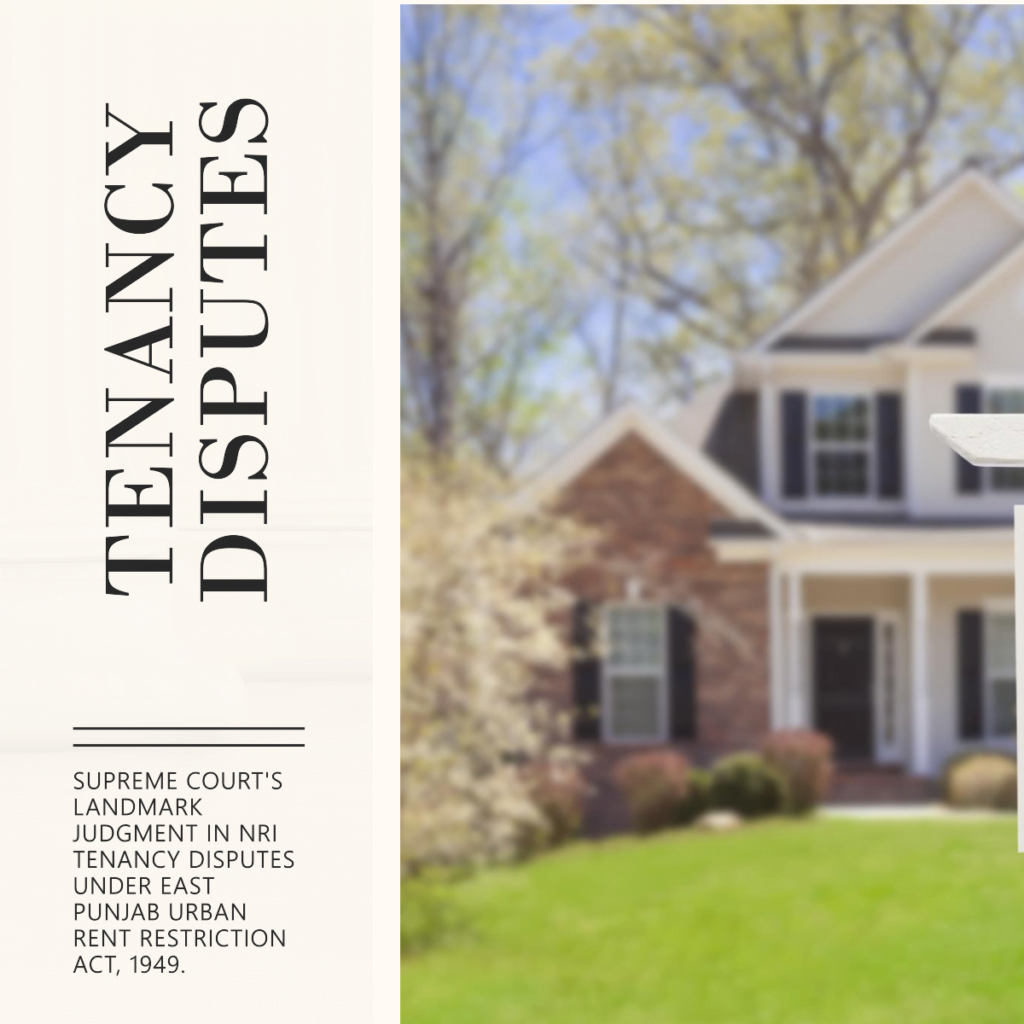
Landmark Judgment: Smt. Shanta Rani vs. Smt. Nasib Kaur
NRI Tenancy Disputes: In a significant legal case that reached the Supreme Court of India, specifically pertaining to NRIs, Smt. Shanta Rani, who occupied Shop Room No. 2 in Guru Amardas Chowk, Model Town, Jalandhar, found herself contesting an eviction order issued by the Rent Controller. The case, formally titled as Smt. Shanta Rani vs. Smt. Nasib Kaur, primarily revolved around the landlord’s request for eviction based on specific grounds. In this post, we aim to provide a comprehensive summary of the judgment and highlight its key aspects.
Background NRI Tenancy Disputes:
Smt. Nasib Kaur, the landlady, initiated eviction proceedings against Smt. Shanta Rani under Section 13 of the East Punjab Urban Rent Restriction Act, 1949. She cited reasons related to her need to conduct a business in the tenanted premises, thus triggering the legal dispute. Smt. Nasib Kaur claimed the status of a Non-Resident Indian (NRI) due to her residence in the United Kingdom.
The tenant, Smt. Shanta Rani, sought leave from the Rent Controller to defend the eviction through summary procedure, thereby contesting various aspects of the case. Subsequently, she raised important contentions and objections in her defense.
Key Points from the Judgment of NRI Tenancy Disputes:
Non-Resident Indian (NRI) Status:
The Rent Controller determined that Smt. Nasib Kaur qualified as an NRI based on her possession of a United Kingdom passport, which satisfied the definition under the Act. Consequently, this crucial finding had significant implications for the overall outcome of the case
Ownership Confirmation:
Documentary evidence, specifically a sale deed, established that Smt. Nasib Kaur owned the tenanted premises (Shop Room No. 2). The tenant’s denial of the landlady-tenant relationship was not considered valid.
Eviction Grounds:
Initially, the landlord sought the eviction order due to default in rent payment but subsequently amended the request to pursue eviction under Section 13-B of the Act. The Rent Controller rightly did not proceed with the inquiry on the alleged rent default.
Multiple Eviction Petitions:
The tenant argued that since a possession order had been granted to another owner (S. Kuldeep Singh) for Shop Room No. 5, Smt. Nasib Kaur was barred from maintaining the current eviction application. However, the High Court ruled that each owner had separate grounds for possession and that Smt. Nasib Kaur’s application was valid.
Conclusion NRI Tenancy Disputes:
The Supreme Court’s judgment in the case of Smt. Shanta Rani vs. Smt. Nasib Kaur has significant implications for tenancy disputes, especially those involving NRIs and summary eviction proceedings under the East Punjab Urban Rent Restriction Act, 1949. The decision, in essence, offers a valuable sense of clarity on pertinent matters concerning maintainability, ownership, and the interpretation of relevant legal provisions. Furthermore, it serves as a benchmark for how the courts handle such cases, contributing to the legal framework governing landlord-tenant relationships in India.
This judgment serves as a precedent for similar cases, thereby setting a clear standard for how such disputes should be handled in the future. It also underscores the paramount importance of understanding the legal intricacies involved in tenancy disputes. It reaffirms the principle that NRIs can pursue eviction proceedings in India, even when they are not physically present in the country, as long as they meet the legal criteria for NRI status.



Leave a Reply